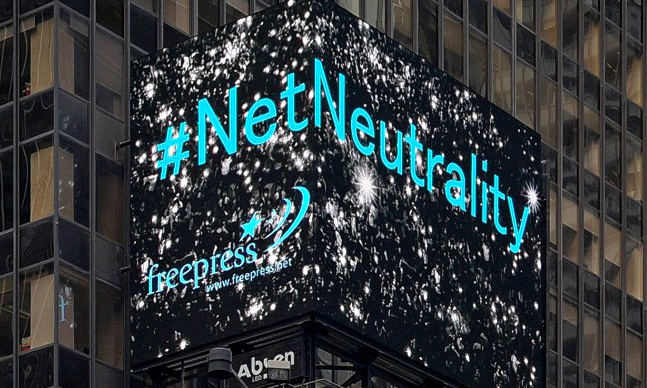JULY 15, 2015 | BY ROSE KAPLAN
It’s been a quiet month for Net Neutrality. The Hill’s David McCabe reports on the climate around the FCC and the telecom world as the new rules have gone into effect, noting that only one complaint has so far been filed—by San Diego-based Commercial Network Services, against Time Warner Cable (Public Knowledge’s Harold Feld explains here why CNS doesn’t have a case).
Looking back, Candace Clement and Mary Alice Crim write on Medium.com about lessons we can draw from the Net Neutrality and anti-Comcast/Time Warner Cable merger fights. And in another must-read, Joseph Torres examines how activists of color are challenging racism and white supremacy via media policy issues:
“[P]erhaps unexpectedly, [a new generation of racial justice leaders] have played a key role in policy debates over the future of the open Internet, safeguarding the structures that will be critical to any effort to challenge and change the media narrative on race—so we’re not repeating the same stories 50 years from now in the ongoing fight for racial justice.”
In another fight for justice, filmmaker Laura Poitras—director of 2014’s Academy Award best documentary Citizenfour (about Edward Snowden and NSA surveillance)—is suing the Federal Government, The Intercept reported this week. Poitras was detained, searched, and interrogated more than fifty times over the past six years, and now, after receiving no response to her Freedom of Information requests for documents relating to her being targeted, she hopes to use the lawsuit to find out why.
A blog post last month by Public Knowledge’s Phillip Berenbroick shifts focus to rural broadband, highlighting how the recent reclassification of broadband as a “telecommunications service” under Title II of the Telecommunications Act gives the FCC more authority to use the Universal Service Fund—traditionally focused on providing telephone service only—to expand broadband access for rural Americans.
Finally, back in April, we linked to a Free Press story about how some ISPs had purposefully engineered “highly congested states” at their interconnection points with certain carriers and content providers, slowing down web traffic for millions of Americans. Now, Free Press and other organizations involved in BattlefortheNet.com have launched the Internet Health Test, an initiative allowing you yourself to collect speed measurement data and help determine whether ISPs are degrading speeds in your area—a potential violation of the FCC’s new Net Neutrality rules.
Rose is a Consulting Producer, Membership/Communications for NAMAC.



Leave a Reply